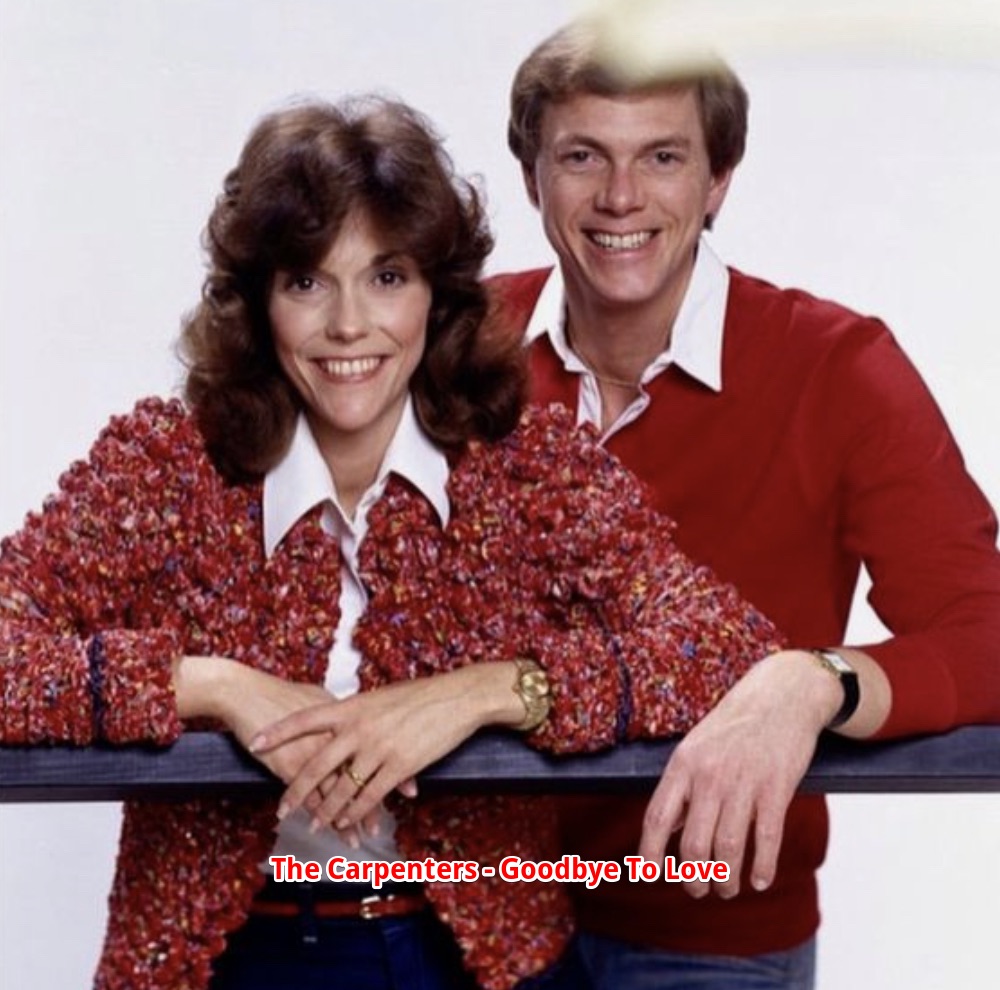
The Carpenters, the iconic soft rock duo known for their lush arrangements and Karen Carpenter’s velvety vocals, were the soundtrack for countless slow dances and tender moments throughout the 1970s. Their music, characterized by its easy listening quality, served as a soothing balm during turbulent times. However, in 1972, with the release of the track “Goodbye to Love” from their album A Song for You, they took a bold step in a new direction that surprised fans and critics alike.
While the song retained the familiar warmth and emotional intimacy of The Carpenters’ signature style, it introduced an unexpected element: a fuzz-toned electric guitar solo performed by session musician Tony Peluso. This daring addition brought a raw rock and roll energy that sharply contrasted with the duo’s usual sound. The electric guitar solo, positioned in the bridge, shocked some listeners with its intensity, akin to a sudden clap of thunder breaking through a gentle rainstorm.
Richard Carpenter, the meticulous arranger and producer behind the duo’s sound, explained that the inclusion of the guitar solo was a deliberate creative choice aimed at pushing boundaries. He envisioned the song as a “mini-movie,” with the guitar solo serving as a dramatic climax that elevated the emotional experience of the track. Peluso’s solo, filled with yearning and passion, gave voice to the heartbreak and frustration embedded in the song’s lyrics.
“We wanted to experiment and create something that told a story beyond the usual,” Richard Carpenter said. “The guitar solo was that emotional peak, the moment where the music expressed what words alone couldn’t.”
The lyrics of “Goodbye to Love” narrate a poignant story of unrequited love and the resignation that follows. Karen Carpenter’s unparalleled vocal delivery brings a heartbreaking sincerity to lines such as “Time and time again the chance for love has passed me by.” Her ability to convey vulnerability made the song resonate deeply with anyone who has experienced the pain of longing and the bittersweet acceptance of solitude.
Music critics have since hailed the song as a pivotal moment in The Carpenters’ career. It demonstrated their willingness to evolve and experiment, adding layers of depth and complexity to their music that transcended the easy listening label they were often assigned. Despite initial surprise—especially from traditionalists—the song garnered widespread acclaim and reached a broader audience than before.
Music historian Susan Greene noted, “‘Goodbye to Love’ was a game-changer. It showed that The Carpenters were not afraid to take risks, blending soft rock with unexpected elements that enriched their sound and influence.”
The success of “Goodbye to Love” paved the way for other artists of the era to incorporate diverse influences into their music, contributing to the dynamic evolution of popular music throughout the 1970s. More than just a song, it stands as a testament to The Carpenters’ artistry and their ability to deeply connect with listeners through emotional and musical innovation.
In the end, “Goodbye to Love” reminds us that even amid heartbreak, there is resilience and beauty to be found, embodied in a piece of music that not only challenged expectations but also endured as a classic.